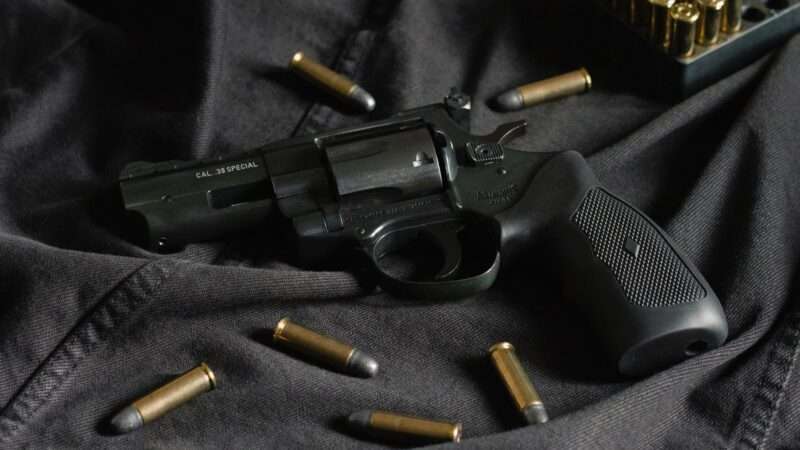
In my column this week, I note that the Bipartisan Safer Communities Act, which was hailed as victory for "common sense" gun control when it was approved last month, increased the penalties for illegal possession of firearms. The law raised the maximum sentence for people with felony records from 10 to 15 years and created a new "trafficking in firearms" offense, also punishable by up to 15 years in prison, that is defined broadly enough to include receipt of a firearm by someone who is legally disqualified from owning one. Those provisions affect millions of "prohibited persons" with no history of violence, including cannabis consumers, former psychiatric patients, and people convicted of drug crimes or other nonviolent felonies.
It gets worse. Patricia Richman, national sentencing resource counsel at Federal Public & Community Defenders, notes that the "trafficking in firearms" provision applies to anyone who obtains a gun when he "knows or has reasonable cause to believe that such receipt would constitute a felony." It therefore covers prohibited persons as defined by state as well as federal law—a significant expansion, since state criteria for gun ownership are often stricter than federal criteria. That provision, Richman notes in an email, "pull[s] in all state felony prohibitions on firearm possession."
Maryland, for example, prohibits handgun possession by people convicted of violent misdemeanors, such as simple assault, that are not disqualifying under federal law. Violating that rule is a felony that carries a mandatory minimum sentence of five years in prison. That means someone with a disqualifying misdemeanor record who obtains a handgun in Maryland could also be guilty of "trafficking in firearms" under the Bipartisan Safer Communities Act, even if he was not a prohibited person under federal law. So in addition to Maryland's five-year mandatory minimum, he could face up to 15 years in federal prison.
The U.S. Supreme Court has ruled that such serial prosecutions do not amount to double jeopardy under the Fifth Amendment, even when they involve state and federal crimes with the same elements. In the 2019 case Gamble v. United States, the Court rejected an appeal by a man with a felony record who had been convicted of illegal gun possession twice, once under state law and once under federal law.
The "trafficking in firearms" provision includes a knowledge requirement that could be helpful for some defendants. Last year, for example, the Maryland Court of Appeals considered the case of Mashour Howling, who was arrested in 2019 because he had a pistol and had been convicted of simple assault in Pennsylvania 17 years before. Howling argued that he should not have been convicted of illegal handgun possession because he did not realize he was a prohibited person. That argument, he noted, was consistent with the reasoning of the U.S. Supreme Court's 2019 decision in Rehaif v. United States, which held that prohibited persons can be convicted of illegal gun possession under federal law only if they recognized that they were not allowed to have firearms.
The Court of Appeals unanimously ruled that Maryland law imposes no such requirement. The court said it was enough that Howling knowingly possessed a handgun, even if he did not know that his 17-year-old Pennsylvania conviction made that illegal in Maryland. But in federal court, a defendant like Howling who was charged with "trafficking in firearms" could argue that he was not aware of his prohibited status.
The interaction between state law and the Bipartisan Safer Communities Act nevertheless could create traps for gun owners who do not realize how broadly and counterintuitively "trafficking in firearms" is defined. California, to take another example, has a long list of disqualifications that goes beyond federal law, including some misdemeanors that do not involve domestic violence. Prosecutors have discretion to charge gun owners who are disqualified because of misdemeanors with felonies.
Restrictions on gun ownership vary widely from state to state and often go further than federal law. In any state where violating those restrictions is a felony, a prohibited person who obtains a gun can now face prosecution for "trafficking in firearms," even though he never actually trafficked in firearms.
The post Gun Owners Who Are Disqualified Under State Law Can Now Be Charged With 'Trafficking in Firearms' appeared first on Reason.com.







